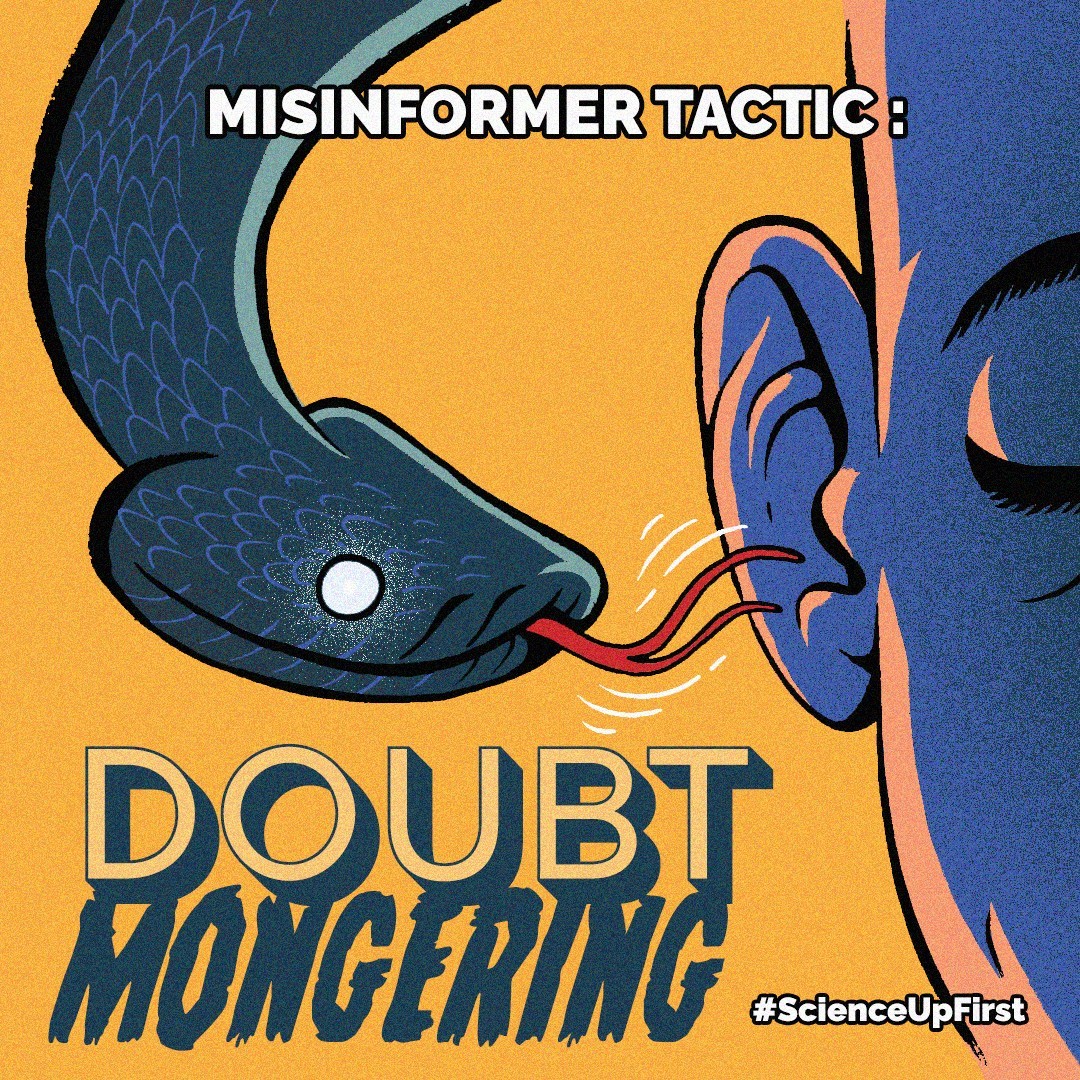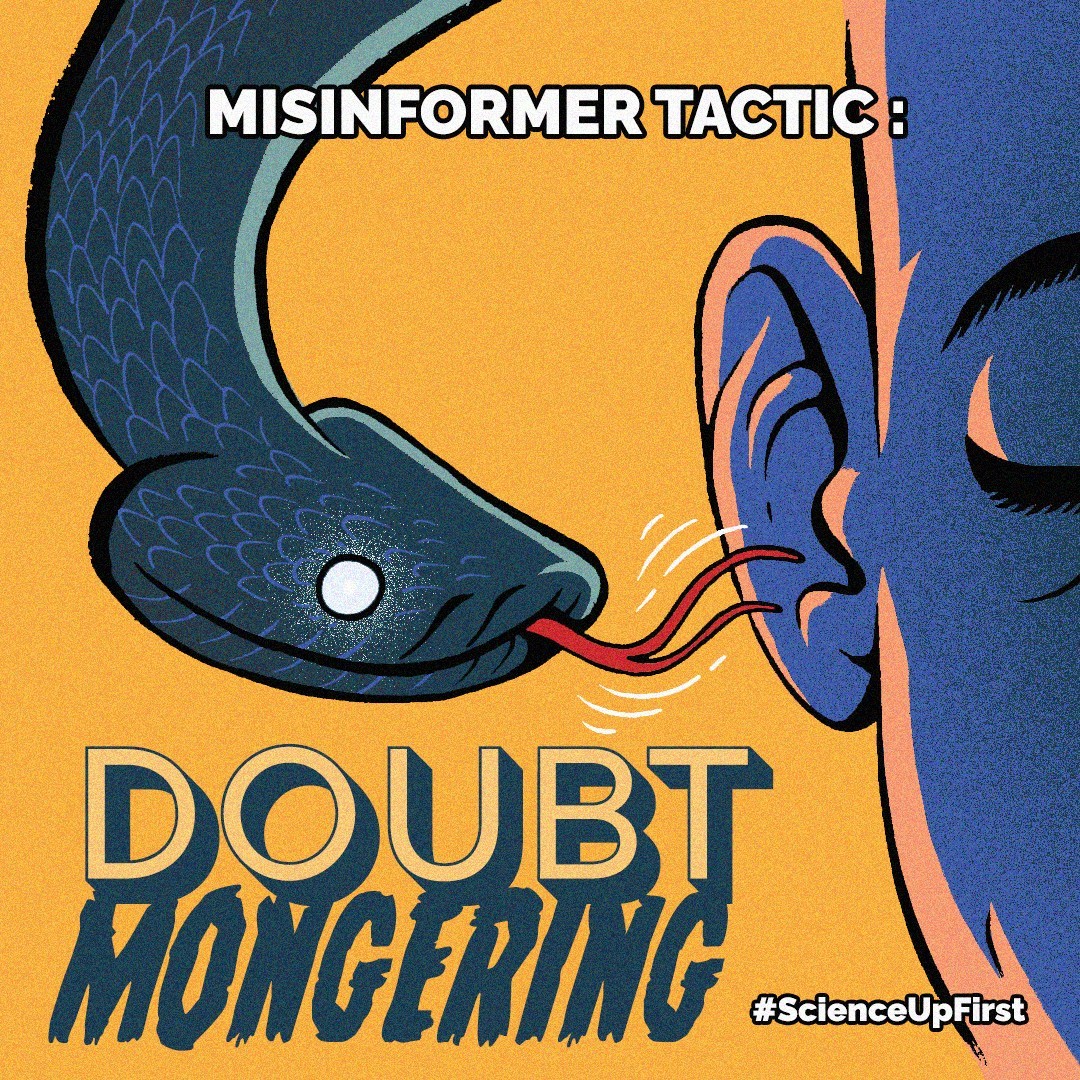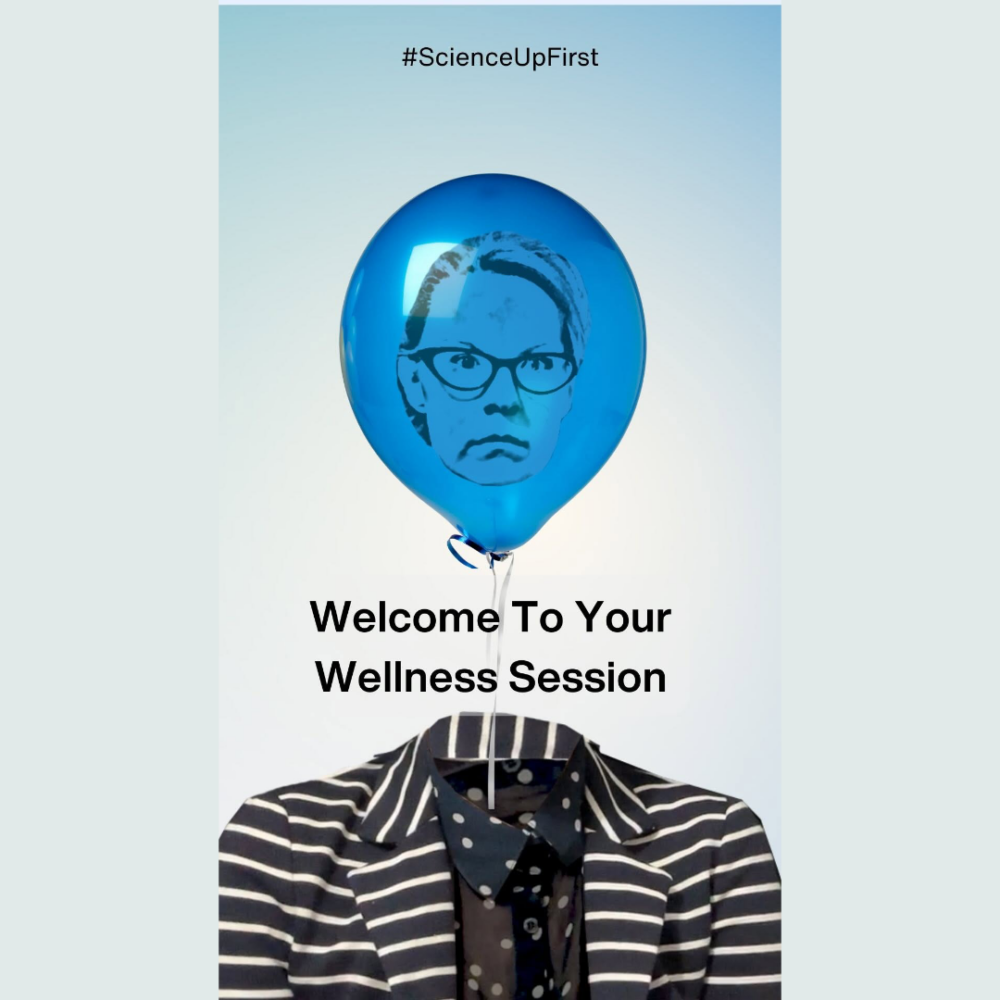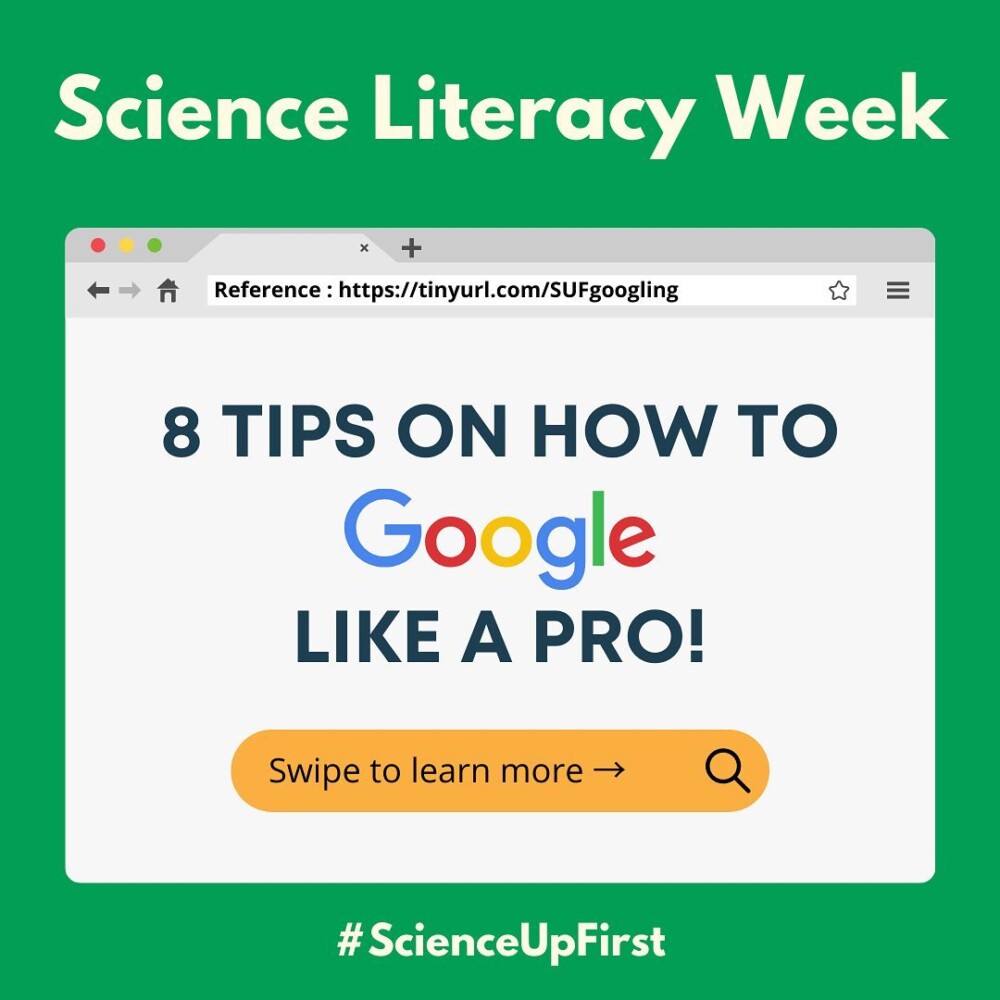
When is it that a healthy amount of doubt and skepticism becomes a bad thing? When misinformers use it to question what has been scientifically proven and settled. That’s what we call doubt mongering (1,2).
The tobacco industry used this tactic to question the implication of cigarettes in lung cancer. This tactic has also appeared in climate change, and nuclear disarmament debates (1).Doubt mongers don’t try to convince you about their agenda, instead they create doubt on what’s proven scientifically. For example, instead of trying to convince you that tobacco or climate change is harmless, they state that the science is in doubt. This way they have you thinking that more information is needed before any regulation or policies are put in place (3).
A doubt monger will also (1):
- Only present data that fits their agenda
- Fund their own research hoping to get favorable results
- Claim the solution would be more dangerous or too costly
- Create the illusion of a disagreement among scientists
- Publish in mainstream media to reach more people
- Deflect the issue toward something irrelevant
- Attack the science or the scientist’s reputation and motivation (sounds familiar? Check out our Ad Hominem attack post!)
When wondering if you may be faced with a doubt monger, ask yourself these questions (4):
- Is the information coming from a legitimate source?
- Is the expert specialized in the field?
- Is the expert associated or paid by an organization to whom the allegations would benefit or disadvantage?
If you answered yes to one or more of these questions, you might be dealing with a doubt monger!
Many thanks to Jordan Collver for collaborating with us on this project! Check out his work on his website (jordancollver.myportfolio.com) and on Twitter (@JordanCollver)
Share our original Tweet!
When is it that a healthy amount of doubt and skepticism becomes a bad thing?
When misinformers use your healthy doubt and skepticism to question what has been scientifically proven and settled, it’s called doubt mongering. #ScienceUpFirst
[1/7] pic.twitter.com/SzLbw3Os39
— ScienceUpFirst | LaScienced’Abord (@ScienceUpFirst) August 25, 2022
View our original Instagram Post!
View this post on Instagram




